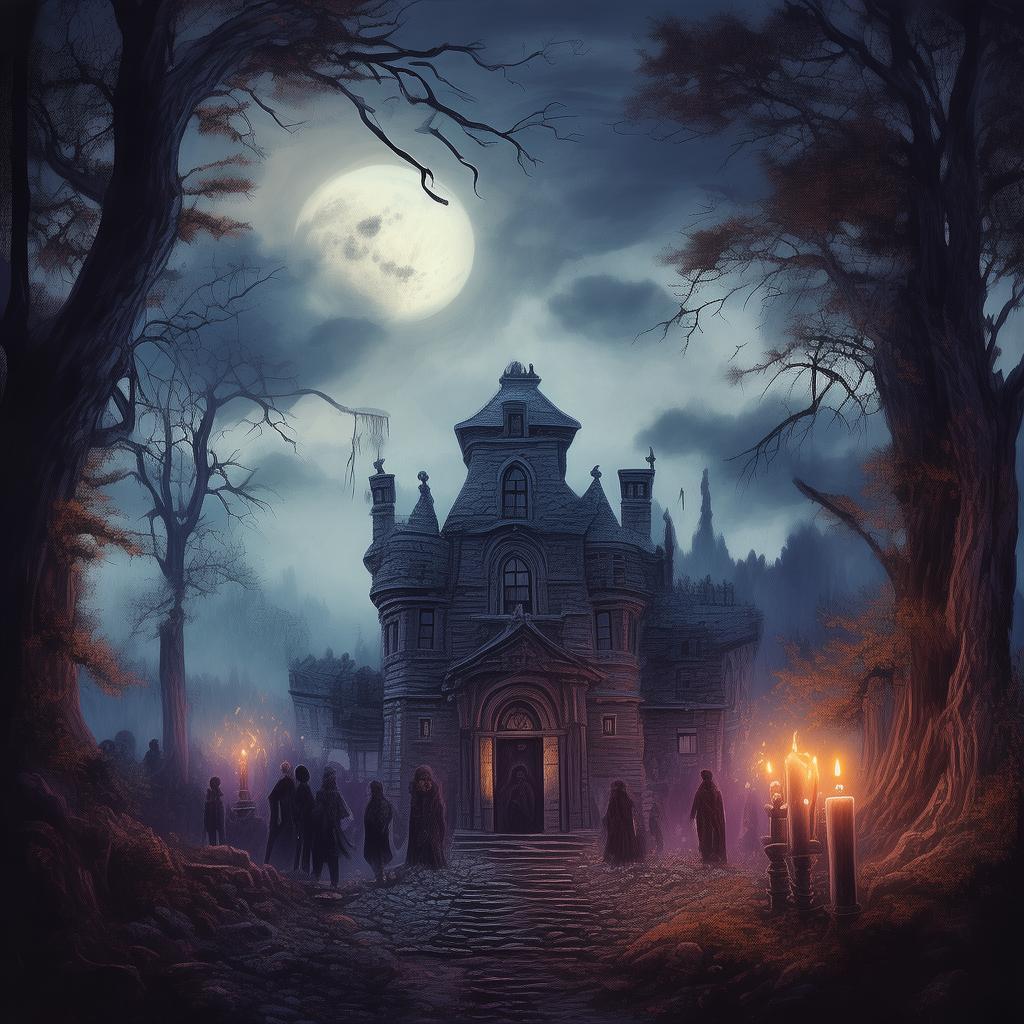The Haunting Halls of Mandalay
In the heart of Mandalay, where the sun dipped below the horizon and the city's pulse began to slow, there stood an old mansion, its walls whispering secrets as old as the city itself. The Haunting Halls of Mandalay was a name spoken in hushed tones, a place where the living and the dead seemed to coexist in an unsettling harmony.
The mansion's history was as enigmatic as its appearance. Once a symbol of opulence and power, it had been abandoned for decades, its windows fogged with the breath of time and the whispers of forgotten stories. Now, it belonged to the descendants of the original family, a lineage that had become synonymous with the city's legends.
Among these descendants was a young woman named Aria. Her father, the current patriarch, had purchased the mansion on a whim, a move that seemed to bring more than just wealth into their lives. The mansion had a life of its own, a consciousness that seemed to be watching, waiting.

The story begins on a cold evening when Aria receives a letter from an unknown sender. The letter speaks of a family secret, a truth buried beneath the layers of time and dust that had settled over the mansion. It spoke of a disappearance, one that had never been solved, and it hinted at a connection between Aria and the past.
Aria, driven by curiosity and a sense of foreboding, decides to delve into the mansion's history. She begins with the old diaries of her great-grandmother, a woman who had once lived in the mansion's splendor. As she reads, she discovers a tale of love, betrayal, and a mysterious disappearance that mirrors the events of her own life.
The mansion, it seems, had been a witness to a tragedy that had torn the family apart. The great-grandmother, in a fit of jealousy, had locked her husband away, believing him to be a traitor to the family's legacy. The husband, unable to escape, had vanished without a trace, leaving behind a son who would grow up to be the patriarch of the family.
As Aria pieces together the puzzle, she finds herself drawn deeper into the mansion's web of secrets. She meets an old gardener, who claims to have seen her husband wandering the halls in the dead of night. The gardener speaks of a hidden room, a place where the patriarch had been confined, and where he had, according to legend, gone mad.
Intrigued and unnerved, Aria decides to search for the hidden room. She enlists the help of her cousin, Leo, a man who had always been close to her, but whose true nature she was beginning to question. Together, they navigate the labyrinthine corridors of the mansion, their every step echoing with the sound of forgotten footsteps.
As they delve further, they uncover clues that suggest the mansion is not just a repository of the past but a living entity, one that seems to be guiding them towards the truth. The walls seem to close in, the air thick with tension, and the temperature drops as if the mansion itself were holding its breath, waiting for the final revelation.
The climax of their discovery comes when they finally locate the hidden room. Inside, they find not the remains of the patriarch, as they had feared, but a series of letters and diaries that tell a different story. The patriarch, it turns out, had been betrayed by his own family, and in his despair, he had taken his own life.
The revelation shatters Aria and Leo, forcing them to confront the dark underbelly of their family legacy. Aria realizes that her own life had been a reflection of the patriarch's, and that she had been walking in his footsteps, unaware of the truth that lay hidden within the mansion's walls.
The ending of their journey is bittersweet. The mansion, having revealed its secrets, seems to sigh with relief, as if it had been holding its breath for centuries. Aria and Leo leave the mansion, their lives forever changed by the experience.
The Haunting Halls of Mandalay is not just a story of a family secret; it is a psychological thriller that delves into the depths of human psyche, exploring themes of identity, legacy, and the power of secrets. It is a tale that will leave readers questioning the nature of reality and the true nature of the past, long after they have turned the last page.
✨ Original Statement ✨
All articles published on this website (including but not limited to text, images, videos, and other content) are original or authorized for reposting and are protected by relevant laws. Without the explicit written permission of this website, no individual or organization may copy, modify, repost, or use the content for commercial purposes.
If you need to quote or cooperate, please contact this site for authorization. We reserve the right to pursue legal responsibility for any unauthorized use.
Hereby declared.









